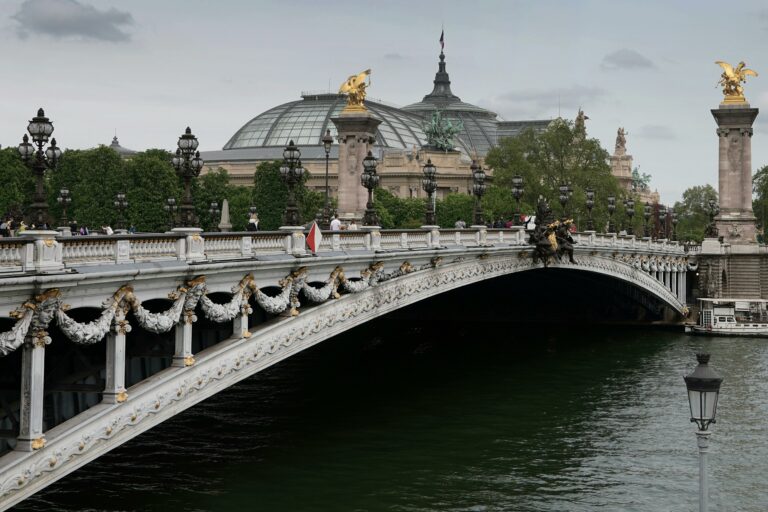Key Insights from ChangeNOW 2024 on Sustainable Travel and Ocean Preservation
Summer is here, school is out, and it’s time for that long-awaited holiday. For many, this means traveling and enjoying a well-deserved rest on the beach. Yet, as our travel horizons expand and we connect with far-off destinations, reaching protected ecosystems, the environmental impact of our holidays continues to grow.
ChangeNOW, the largest event of solutions for the planet, addressed critical issues in its program this year, such as the impact of vacationing and deep-sea mining. The event gathered experts and stakeholders from different fields to share practical strategies for sustainable travel and the protection of marine life.
Finding joy in slow travel
Despite being 14 times more polluting than trains per person per kilometer, planes remain ever more popular[1]. In fact, the number of passengers traveling by air could reach 4.7 billion in 2024 — 200 million more than in 2019, according to the IATA. Their practicality — being able to travel across the globe in a matter of hours — and low cost compared to other means of travel unfortunately make planes the preferred option for long-distance travelers.
The conference Turning One’s Journey into an Adventure (in French) offered a different perspective on travel and put the spotlight on other modes of transportation beyond planes. They also encouraged us to re-evaluate our relation to travel, and rediscover the places closer to us that deserve just as much of our attention. Experts and stakeholders in the sustainable travel sector, whether night train enthusiasts, sailing fans or experienced hikers, all shared their solutions for environmentally-conscious holidays. They all agreed on one thing: the journey matters just as much as the destination.
Thomas Firh, CEO of Les Others, encouraged attendees to stop optimizing their time and instead focus on optimizing the pleasure of the journey. The time we spend traveling itself should be considered as part of the holiday. Nora Leon, CMO of Nightgoes, echoed this sentiment, saying, “Sometimes, slowness also allows us to reconnect with ourselves, meet new people, and enjoy landscape-watching more.” Some, like Johan, known as Le Jeune Engagé on social media, and Victoria, from the podcast Nouvel Œil, have explored new countries by taking trains to the far ends of Asia, rediscovering the importance of mutual aid. Others who have sailed, like the Co-founder of Sailcoop Stéphane Dierick, now know what it feels like to be in the immensity of the sea — and how much traveling can truly be an adventure in itself.
Watch the conference (in French).
Re-learning how vital oceans are
Those who sail generally share a unique love for the ocean, a love that motivates them to protect it. We are dependent on the ocean, but it’s easy to forget it. Most of us have never been in the middle of an ocean and cannot imagine that this vast body of water gives us 1 out of 2 breaths we take. With new threats emerging, protecting the ocean is becoming ever more crucial, especially from invasive and harmful practices like deep-sea mining. Marie-Kell de Cannart from Sustainable Ocean Alliance France warned, “It’s biodiversity loss at 4,000 meters of depth. We’re going to [completely destroy] what has been there for millions of years, and there’s no way of getting it back.” This destruction not only threatens marine ecosystems, kills species and jeopardizes fisheries, it also puts at risk the largest carbon sink in the world[2].
Becoming an ocean ally
In that context, Sustainable Ocean Alliance’s Founder & CEO Daniela Fernandez’s question takes on its full meaning: “What if we could disrupt every single industry out there, so that instead of contributing to the destruction of our planet, we are healing it, regenerating and sustaining our ocean?” We did not have to wait long for a solution to be evoked: Santiago Lefebvre, Co-founder of ChangeNOW, emphasized the need for collective action. “To do that, we need to have all of civil society, all the entrepreneurs, all the NGOs, all the knowledge and ecosystem focusing on that. Otherwise, we don’t have the critical mass to really push the negotiations.”
In this fight, anyone can become an ocean ally. As Jahawi Bertolli, Founder of East African Ocean Explorers, put it, “We need more champions for the ocean and more local voices who can actually talk about it and become champions in their community.” And perhaps we could meet all these champions by taking our time to reach our destination, pausing along the way to learn from each other.








